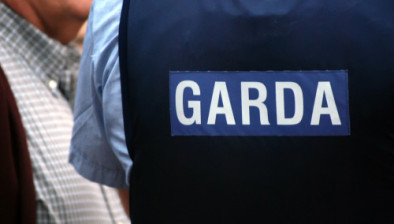Court of Appeal: Mandatory disqualification for careless driving only applies after two previous convictions in three previous years

The Court of Appeal has held that a mandatory disqualification from holding a driving licence due to careless driving only applies if the accused had two previous convictions for careless driving in a three-year period prior to the offence.

About this case:
- Citation:[2022] IECA 302
- Judgment:
- Court:Court of Appeal
- Judge:Mr Justice Patrick J. McCarthy
The decision provides clarity on the issue of mandatory disqualification which has been the topic of debate amongst legal professionals.
Delivering judgment in the case, Mr Justice Patrick McCarthy held that the previous decision of Director of Public Prosecutions v Alam [2017] IECA 311 should not be followed. In Alam, the court held that no prior convictions were necessary for a mandatory disqualification order to arise on conviction, but the Court of Appeal stated that the issue was more fully argued in the present appeal.
Background
The accused was a person who pleaded guilty to the offence of careless driving causing death contrary to section 52 of the Road Traffic Act 1961 as amended. She received a 12-month sentence which was suspended on terms. The Circuit Court was also required to consider the question of whether a “consequential disqualification order” arose from the offence.
The Circuit Court stated a case to the Court of Appeal, asking whether the accused was liable to a mandatory disqualification order preventing her from holding a driving licence for four years on a first offence, or six years for a second or subsequent offence.
Under section 26(1) of the 1961 Act, a court was required to make a mandatory order for disqualification for specified offences. Careless driving was listed in the specified offences as attracting a mandatory order, but it was not a simple offence of careless driving. Instead, the relevant legislation stated that a mandatory order applied for:
“An offence by a person under section 52 [careless driving], where the contravention involved the driving of a mechanically propelled vehicle, being an offence committed in a period of 3 years in which 2 or more previous offence were committed by the person under that section for which he or she was convicted.”
Under section 26(4), the periods of disqualification were four years for a first offence and six years for any subsequent offence.
Court of Appeal
In a short judgment, Mr Justice McCarthy outlined the Alam case. It was said that the court in that case had proceeded on the basis that even if there were no previous convictions for careless driving, a consequential disqualification order would arise on conviction. The court explained that both the court and counsel in the case had taken a particular interpretation of the legislation and that it was “understandable, to put the matter no further, that the state of the law has been subject to some continuing debate”.
In the present case, the issues were fully argued and counsel had presented an interpretation that a mandatory order does not always arise, the court said. As such, Alam was not followed.
In determining the case, the court noted that the proper interpretation of the legislation was that a mandatory disqualification did not always apply for every careless driving conviction. Instead, it only applied where there were at least two previous offences within a three-year period.
Mr Justice McCarthy added that the two previous offences in the previous three years could have been tried summarily or on indictment. Further, the offences could have involved death, serious injury or no injury.
The court also considered the periods of disqualification under section 26(4). It was held that references to “first offence” and “any subsequent offence” were “references to the first (or subsequent) offence giving rise to disqualification”.
It was also held that a trial judge had no discretion to decline to impose a mandatory disqualification where it arose. However, if a judge was satisfied that a special reason had been provided, the judge could dispense with the production of a certificate of competency and a certificate of fitness. This was the only mitigation which a judge could provide for offences attracting mandatory disqualification, the court said.
Conclusion
The court confirmed that a mandatory disqualification order under section 26 of the 1961 Act only applied for careless driving where there had been two previous convictions for careless driving in the prior three-year period.
The Director of Public Prosecutions v. McCann [2022] IECA 302












